- Broward County Public Schools
- STEM + Computer Science
- Environmental Stewardship
Applied Learning (Academic Electives, Specials & Magnet Programs)
Page Navigation
- Overview
- Civic Engagement
- Driver's Education
- Magnet Programs
- Music and Performing Arts
- Physical Education & Health Education
- STEM + Computer Science
- Visual Arts
Environmental Stewardship
-
(Download Adobe Acrobat Reader to view or print PDF)
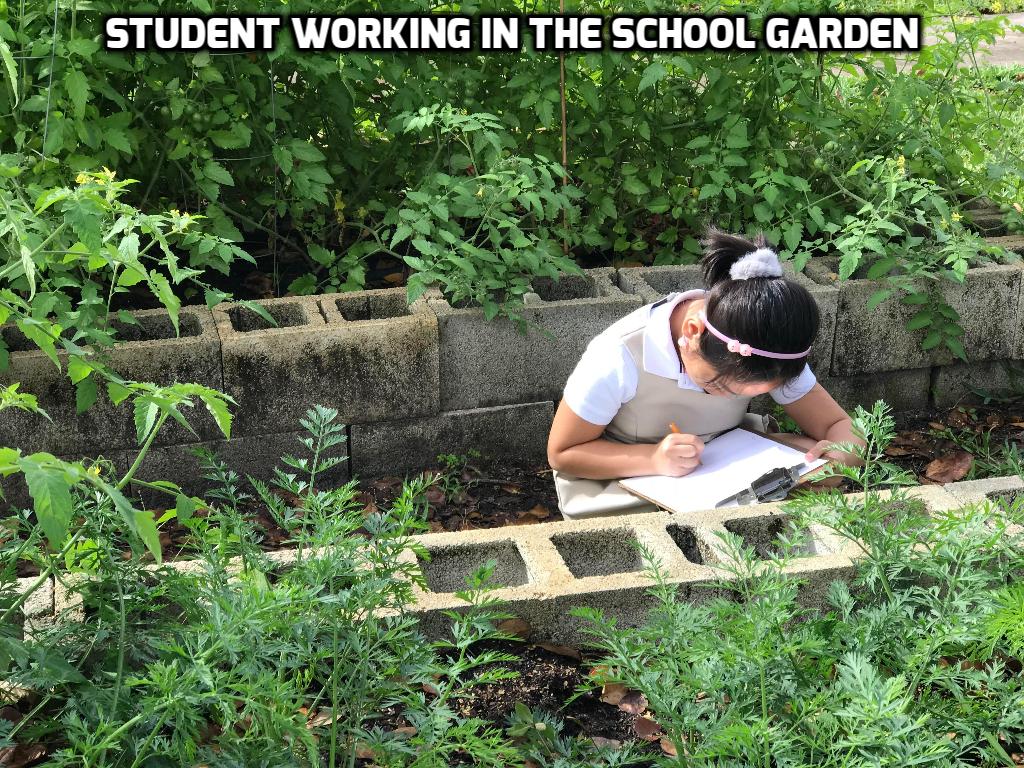 Environmental Stewardship programs are open to all schools at every level (pK - technical colleges). The P3 Eco-Challenge recognizes and rewards schools, educators, volunteers, and students for their environmental steward
Environmental Stewardship programs are open to all schools at every level (pK - technical colleges). The P3 Eco-Challenge recognizes and rewards schools, educators, volunteers, and students for their environmental steward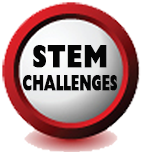 ship annually. Another key component of Broward Schools' environmental initiatives is edible gardening. Programs integrate growing food into the curriculum through raised beds, hydroponics, aquaponics, and controlled environmental agriculture in schools throughout the district.
ship annually. Another key component of Broward Schools' environmental initiatives is edible gardening. Programs integrate growing food into the curriculum through raised beds, hydroponics, aquaponics, and controlled environmental agriculture in schools throughout the district.- Download the 2023-24 Environmental Initiatives brochure.
- The P3 Eco-Challenge is also included in the quarterly STEM Challenges - open now!
- Visit the BCPS Eco-Guide for all things environmental! You will find resources, contacts, lesson plans, activities, field trips, and so much more.
- Our environmental story
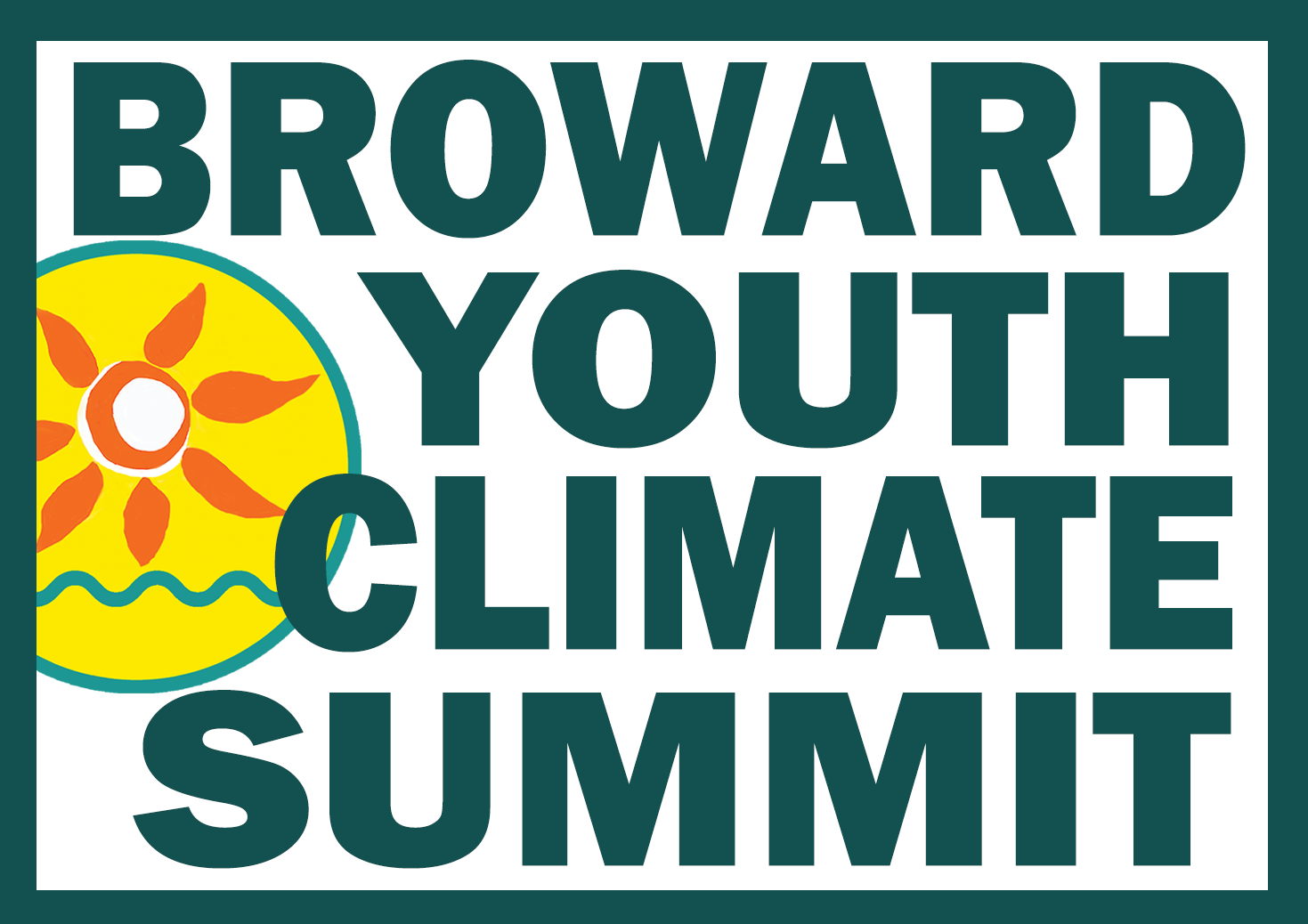 Broward Youth Climate Summit
Broward Youth Climate Summit
The Broward Youth Climate Summit provides a platform for students to advocate for policy change and give students a voice in promoting environmental sustainability. Students who attend the Summit have opportunities to share their climate action plans or projects and network with each other, elected officials, and scientists working on sustainability issues. browardschools.com/youthclimatesummit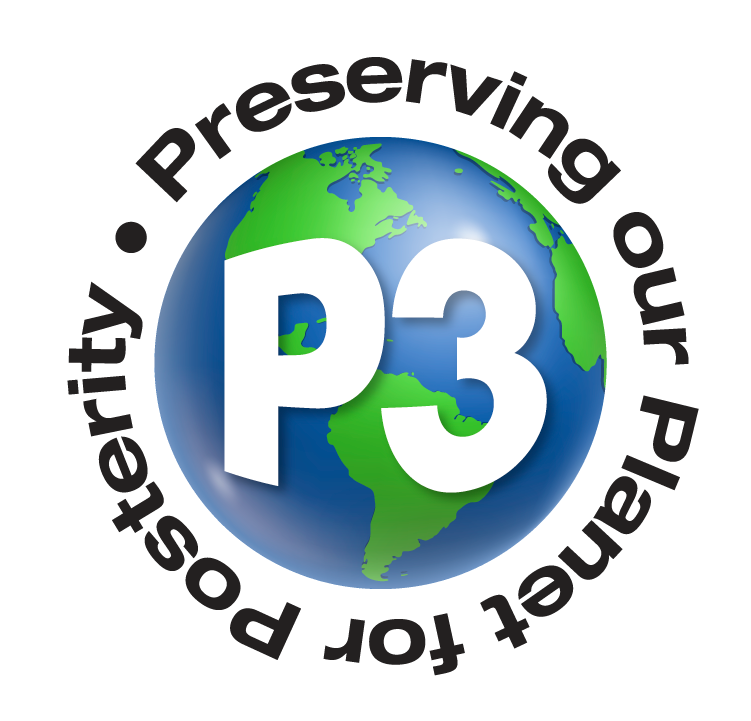 P3 Eco-Challenge: Preserving Our Planet for Posterity - Partnership between BCPS (Applied Learning Dept., Environmental Health & Safety Dept., and Information and Technology Dept.), Broward County Natural Resources Division, and the Environmental Conservation Organization. In its 11th year, this district-wide challenge recognizes and rewards traditional and charter BCPS schools, teachers, students, and non-instructional and custodial staff for their efforts to learn about and implement environmentally sustainable measures and green initiatives within their schools and communities. Over $200,000 in cash and prizes have been awarded. www.browardschools.com/p3
P3 Eco-Challenge: Preserving Our Planet for Posterity - Partnership between BCPS (Applied Learning Dept., Environmental Health & Safety Dept., and Information and Technology Dept.), Broward County Natural Resources Division, and the Environmental Conservation Organization. In its 11th year, this district-wide challenge recognizes and rewards traditional and charter BCPS schools, teachers, students, and non-instructional and custodial staff for their efforts to learn about and implement environmentally sustainable measures and green initiatives within their schools and communities. Over $200,000 in cash and prizes have been awarded. www.browardschools.com/p3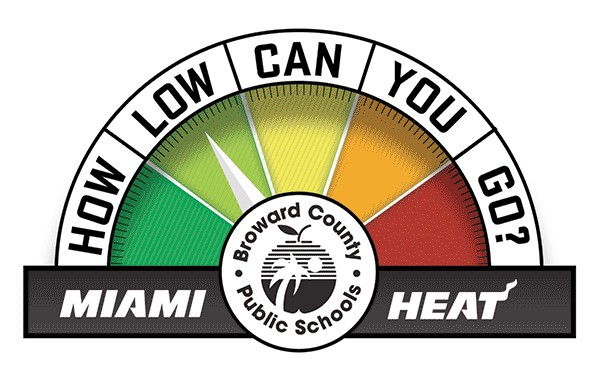 How Low Can You Go Challenge – In partnership with the Miami Heat, schools are challenged to find innovative ways to reduce energy consumption at each school campus in a 3-month period compared to previous years. Recognized by the White House, National Geographic, NOAA, and the NBA during Green Week as a highly effective and innovative model to reduce energy and water consumption. browardschools.com/howlowcanyougo
How Low Can You Go Challenge – In partnership with the Miami Heat, schools are challenged to find innovative ways to reduce energy consumption at each school campus in a 3-month period compared to previous years. Recognized by the White House, National Geographic, NOAA, and the NBA during Green Week as a highly effective and innovative model to reduce energy and water consumption. browardschools.com/howlowcanyougoSTEM in the Parks - an initiative between Broward County Parks and Applied Learning, STEM +CS to involve students in grades 6-8 in their local parks to engage in the environmental curriculum while enriching their understanding of local environmental issues through project-based learning.
Edible Gardens - Schools are provided a comprehensive curriculum supplement for teaching health, science, language arts, mathematics, and social studies through using a school garden. Gardening for Nutrition is one of many resources from Florida Agriculture in the Classroom that is used and implemented to connect edible gardening with interdisciplinary instruction in the K-12 classroom. Curriculum sponsored by Florida Ag in the Classroom.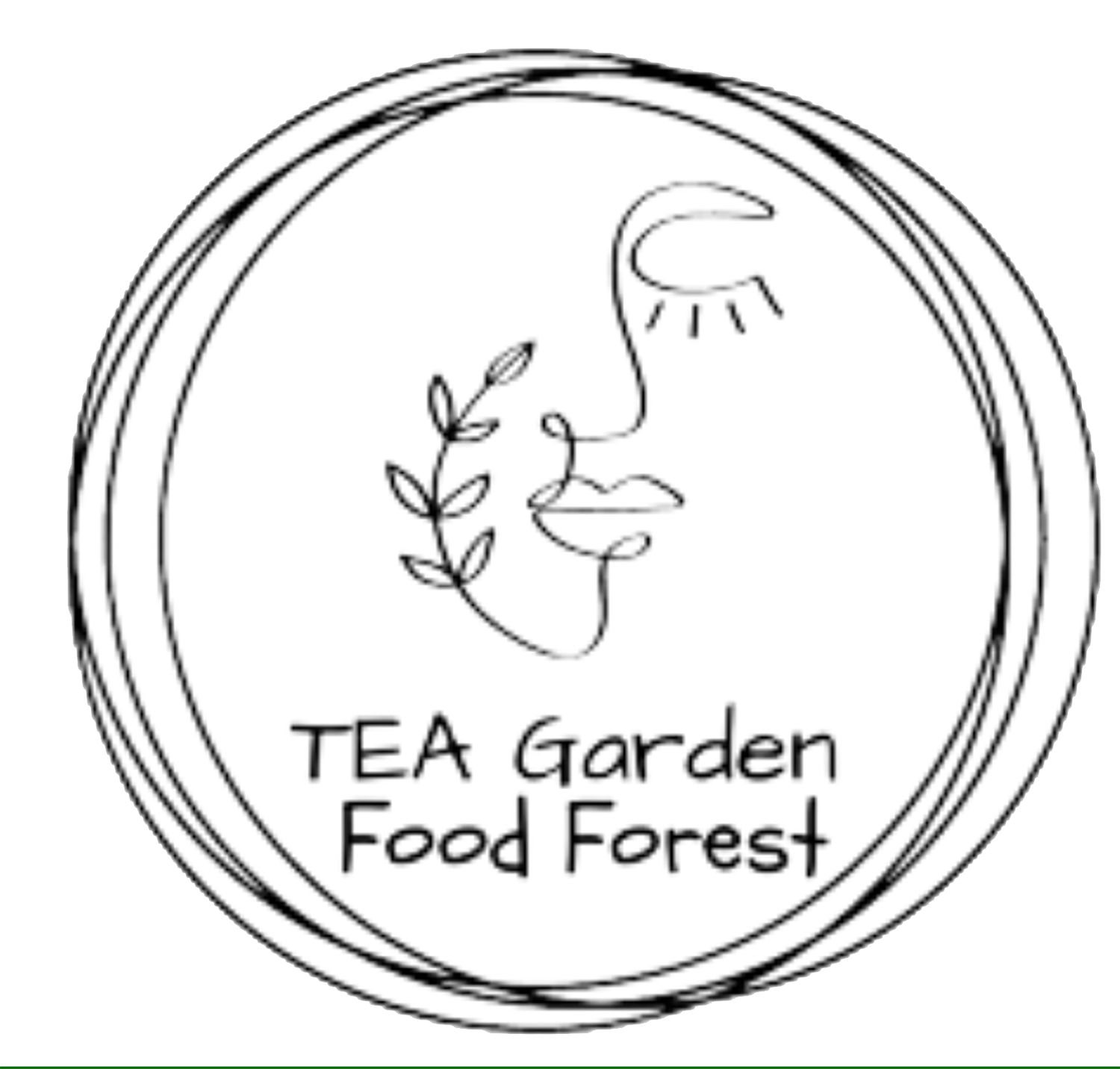 TEA Garden Food Forest - Technology Enabled Agriculture or TEA Garden Food Forest at Broward County Public Schools (BCPS) is funded through The Frederick A. DeLuca Foundation, in partnership with the Broward Education Foundation and BCPS STEM+CS. It is an in-depth model to educate students, teachers and their communities on how and why they can sustainably grow edible food together in their neighborhoods. Integrating schoolyard edible gardening in classrooms, cafeterias and afterschool programs, the Broward TEA Garden Food Forest also incorporates exciting technology used in the agriculture industry, such as drones, sensors, artificial intelligence, and digital data collection and collaboration.
TEA Garden Food Forest - Technology Enabled Agriculture or TEA Garden Food Forest at Broward County Public Schools (BCPS) is funded through The Frederick A. DeLuca Foundation, in partnership with the Broward Education Foundation and BCPS STEM+CS. It is an in-depth model to educate students, teachers and their communities on how and why they can sustainably grow edible food together in their neighborhoods. Integrating schoolyard edible gardening in classrooms, cafeterias and afterschool programs, the Broward TEA Garden Food Forest also incorporates exciting technology used in the agriculture industry, such as drones, sensors, artificial intelligence, and digital data collection and collaboration.Students engage in real-world, culturally relevant STEM project-based learning opportunities to create environmentally sustainable solutions to environmental challenges utilizing a range of technological innovations to monitor gardens, cultivation, and harvesting in their school and communities.
The Food Recovery Program - is a pilot initiative started at Beachside Montessori Village through a partnership between the school, BCPS Food & Nutrition Services, Kids Can, and Broward Outreach to reduce food waste in the school cafeteria. Students are encouraged to donate leftover unopened, uneaten, or unpeeled items from their lunch trays that they don’t want to eat. These collected foods are donated to a local food bank, which is then distributed to the community. This pilot program is being expanded to other BCPS (traditional) schools.
Broward PBL Portal @SciStarter - provides opportunities for students to engage in projects which provide real-world relevance for learning. They can solve problems that are important to them and their communities. The Broward PBL Portal is the product of collaboration with SciStarter and Citizen Science. SciStarter is the place to find, join, and contribute to science by providing people with access to more than 2700 searchable formal and informal research projects & events.
Learning in Florida’s Environment (LIFE) is a model for science-based environmental education on public conservation lands. Each program represents a partnership between the Florida Dept. of Environmental Protection and a school district to bring students outdoors to learn science. Locally, it is part of the Friends of State Parks initiative. The LIFE Program is not a curriculum, but a process for reinforcing and enriching the existing curriculum through hands-on, field labs facilitated by educators, scientists, and land/resource managers.
The Green School Awards - the Florida Department of Education and a host of community partners recognized students, teachers, classes, schools, and school districts for their environmental achievements. BCPS was the first district awarded the Green District gold award and has been a gold recipient since then. www.fldoe.org/schools/healthy-schools/green-schools.stml (this link will take you outside the BCPS site)
Florida Green Apple Schools Designation was initiated by the Florida Department of Environmental Protection (DEP) to encourage K-12 schools to conserve and protect Florida's natural resources. BCPS schools designated as Gold Apple school - Driftwood Middle. Bronze School designated - Griffin Elementary. Green Apple schools – Central Park Elementary School, Dania Beach Elementary, Orange Brook Elementary, Pines Middle, New River Middle, North Andrews Gardens Elementary, Walter C Young Middle. https://floridadep.gov/osi/green-school-designation (this link will take you outside the BCPS site)National Wildlife Federation (NWF) Eco-Schools Pathways – 55 BCPS schools. Through school-based action teams of students, administrators, educators, and community volunteers, Eco-Schools combines effective "green" management of the school grounds, facilities and the curriculum. www.nwf.org/Eco-Schools-USA/Become-an-Eco-School (this link will take you outside the BCPS site)
Broward Habitat Stewards - Over 200 educators have been trained in a 5-day professional development in learning how to implement the NatureScape initiative, how to achieve Schoolyard Habitat certification through the Broward County's NatureScape office, strategies for teaching students the importance of water conservation, urban ecology, and environmental stewardship through fun, cross-curricular environmental activities and learning gardens that enhance the current science and math curriculum.
Everglades Literacy K-12 - The Everglades Curriculum teacher training is a hands-on, inquiry-based program aimed at improving the understanding of this rich topic through interdisciplinary techniques. The Everglades Literacy Conceptual Framework and K-12 Curriculum is a free set of lessons (three per grade level) that scaffold from K-12 in order to build complexity among topics.
SE Regional Envirothon - Annual environmental competition for high schoolers held at various Broward County parks sponsored by our partner, Environmental Conservation Organization (ECO). Students are tested in five universal categories: Aquatic Ecology - Water ecology, water chemistry, plants and animals living in or around water, water quality, water conservation, etc. Current Environmental Issue - A topic selected annually by the Regional or State or Envirothon Planning Committees. Most years the Regional and Florida Envirothon Committees select the same topic as the National Committee. Forestry - Forest ecology, tree identification, insects, diseases, timber measurements, forest management, urban forestry, forest economics, etc. Soil & Land Use - Classification, soil formation, basic chemical and physical properties, profiles, soil characteristics, soil surveys, site suitability, erosion, land use, conservation practices, etc. Wildlife - Identification, habitat, foods, diseases, rules and regulations, management, invasive, etc.
Contact Information
-
Applied Learning
600 SE Third Avenue
Fort Lauderdale, Florida 33301
Phone: --
Susan M. Cantrick
Director
Broward STEM + Computer Science Curriculum Supervisor
-
Dr. Lisa V. Milenkovic
Curriculum Supervisor 754-321-1880 BrowardSTEM@browardschools.com
Environmental News
-
BCPS Honored by US Dept. of Energy
BCPS Honored by US DOE for Sustainable and Healthy School Buildings and Grounds
-
Miramar High School Winner of the 2024 P3 Eco-Challenge
Miramar High School Winner of the 2024 P3 Eco-Challenge

